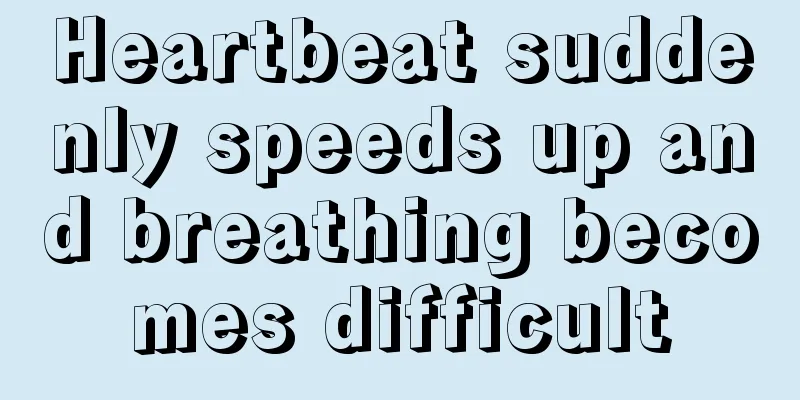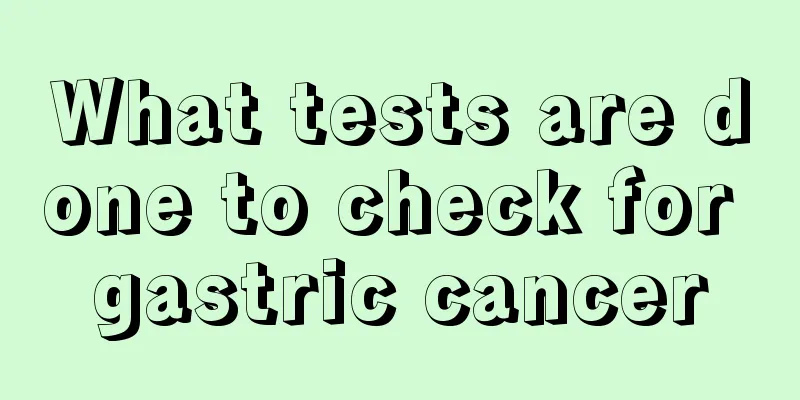Heartbeat suddenly speeds up and breathing becomes difficult

|
We all know that the heart is particularly important to people. If the heart stops beating and working one day, the person’s life will come to an end. The beating of the heart is also related to the person’s mood. If a person is suddenly frightened, the heart will beat faster. When the heart suddenly beats faster, people will feel some changes in their breathing. This is the wonder of the human organ. So what should you do if your heartbeat suddenly speeds up and you have difficulty breathing? Throughout a person's life, the heart works non-stop without sleep. It will not stop beating until life ends. Because the heart constantly contracts and relaxes, the blood in the blood vessels can circulate continuously, allowing people to survive. When the heart beats, the apex of the heart hits the chest wall near the left nipple, forming an apex beat. People who are thin and have thin chest walls can clearly see or feel the beating heart with their hands. Under normal circumstances, an adult's heart beats between 60 and 80 times per minute, but if the heart beats more than 100 times per minute in a quiet state, it is "tachycardia", also known as "palpitations". "Tachycardia" is not a disease name, but a symptom. The causes of tachycardia vary greatly, the most common of which is a disease of the heart itself, such as various types of heart disease, myocarditis, heart failure, etc. Systemic diseases such as anemia, fever, acute and chronic infection, shock, hyperthyroidism, and gas poisoning can also cause tachycardia. For normal people, their heart rate may accelerate when they exercise or are emotionally excited, drink strong liquor, strong tea, strong coffee, smoke a lot, or take certain medications. Why don't young people need to be nervous about tachycardia? Because the main and most common cause of tachycardia in young people is functional autonomic nervous system disorder, which has been confirmed by more and more clinical cases and cardiologists. Most young men and women with palpitations are very nervous when they see a doctor, but after auscultation and full-body examination of relevant items, it is found that except for a rapid heart rate, other examinations are normal. In addition to feeling anxious, patients often have symptoms of neurasthenia such as dizziness, fatigue, loss of energy, insomnia, and nightmares. Tachycardia is very common among young people. According to clinical statistics, it accounts for 16.8% of all young people's visits to the doctor. It is clinically called "adolescent tachycardia." So, why does the autonomic nervous system become disordered during adolescence? Because adolescence is the transition stage from basic maturity to full maturity of the body. During this period, the young person's body and its various important organs, such as the heart, lungs, brain, and genitals, are changing rapidly, and all these changes are controlled by the nervous system and endocrine system. In the nervous system, there is a kind of autonomic nerve whose center is not in the cerebral cortex, but in the hypothalamic center under the cortex. Therefore, it is not controlled by human will. The autonomic nervous system regulates the coordination and balance of the sympathetic nervous system and the vagus nerve to adapt to changes in the external environment, and all the planning and strategy are self-evident. However, the autonomic nervous system function during adolescence is generally unstable and can easily become disordered or dysfunctional. Tachycardia is caused by the coordination disorder between the sympathetic nerves (which accelerate the heartbeat) and the vagus nerves (which inhibit the heartbeat) under the command of the autonomic nervous system, with the sympathetic nerves taking the dominant position. In other words, the occurrence of tachycardia is mainly related to the decrease in vagus nerve tension and the excitement of sympathetic nerves. However, this is only a temporary disorder and does not require special treatment. After puberty, palpitations will heal on their own. Although adolescent tachycardia is not an organic disease, it is still very uncomfortable when the heartbeat accelerates, especially when the heart rate exceeds 140 beats per minute. Therefore, when the tachycardia is above 120 beats per minute, you should rest properly and take some medicine to regulate the balance of the autonomic nervous system. If the frequency is less than 120 times, there is generally no need to rest, just take some medicine appropriately. To sum up, young people should treat tachycardia with an optimistic attitude of "being open and worry-free", not burdened by temporary adolescent disorders, and should study and work with full energy, participate in various social activities and physical exercises. Practice has shown that proper activity and exercise can often alleviate symptoms. Smoking, excessive drinking, or drinking strong tea, coffee, etc. often make the heart beat faster. Therefore, quitting smoking and drinking, being in a good mood, and leading a regular life are the only way to cure tachycardia. |
>>: How to deal with a husband with a bad temper
Recommend
What is the best way to remove moisture through massage?
Many people often get sick, and most people wonde...
About the disadvantages of wearing a wig
Wearing a wig can beautify our image. It is a goo...
Is it a boy or a girl if the fetal heart rate is fast?
Parenting experts say that under normal circumsta...
What vitamins are lacking when you always get angry
If you often get angry, it is recommended to deve...
Is dried blood contagious?
Even today when modern medicine is so advanced, t...
What should liver cancer patients eat?
Liver cancer is a major culprit that harms our bo...
Which hospital is good at treating melanoma
Melanoma, also known as malignant melanoma, is a ...
What kind of sun protection clothing is good and how to choose it
Whenever summer comes, many friends who need to w...
Will eating laundry detergent give me a high fever?
Detergent is very common in our daily life, espec...
Onychomycosis survival time
"If you have onychomycosis, one person can i...
In summer, small blisters grow on fingers and they are very itchy
Because of the hot weather in summer, many bacter...
Can asthma cause coughing up blood?
If asthma patients keep coughing for a long time,...
What's wrong with toothache and eye pain
Toothache and eye pain are both common clinical p...
How to prevent pollen allergy
People who are prone to allergic reactions to pol...
Cold, stuffy nose, runny nose, sneezing
No matter what season it is, some people will suf...









